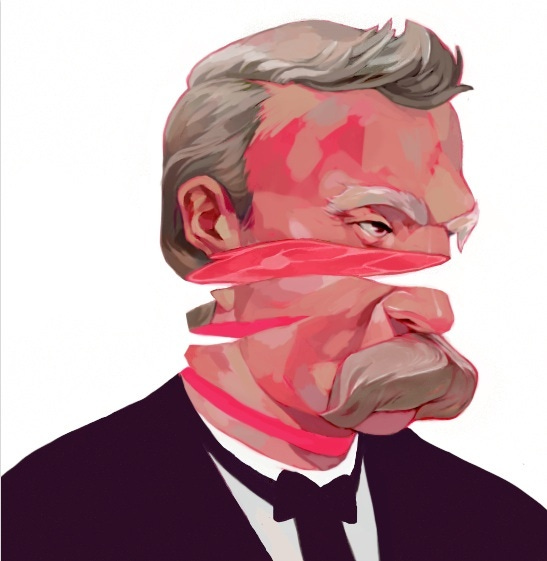Criticism of Nietzsche
This piece originally appeared on Quora.com as an answer to the question, “What are the biggest criticisms of Friedrich Nietzsche?”
The biggest criticism of Nietzsche? Well, that’s a bit of a subjective question, as questions about significance usually are. Let’s begin at the beginning.
Nietzsche’s analysis of the history of Western society forms the ground for much of his philosophy. Nietzsche was sort of like a doctor for civilizations: his thought is mostly based on a diagnosis of the contemporary state of European culture (at his time) and the cause of that state, a prognosis of where things were headed, and a prescription for how to manage our future. He looked into Europe’s past, into its history, and tried to figure out why European society was the way it was, which was like a diagnosis. He then tried to project into the future and make a prediction of where things were headed, like a prognosis. He was afraid that bad things would happen, per his prognosis, so he prescribed certain things we could do to avert disaster, like a prescription. He was like a doctor for civilizations.
Nietzsche’s idea was that, after two thousand years of Christianity, European civilization had lost its way. The Enlightenment, the Scientific Revolution, and the consequent changes in society resulting from science and technology, had created a situation where the old values, the bedrock that we use to make decisions, was no longer tenable. We could no longer rely on our old myths. To Nietzsche, morality and values are a necessary component of society because they govern how we behave, how we run our societies, how we see the world. A value can’t tell you what is or isn’t true, but it does tell you what you should do.
(If that doesn’t make sense, I have a previous piece that may shed some more light)
Anyway, if our old values no longer make sense, and there is no more universal framework that we can use to make decisions, then what can we do? Without our old values, we’ll fall into nihilism, the total absence of all value. Without any values, without anything to strive for, we just give up and fade away. Christianity, and before that, paganism, provided a universal framework, an interpretation of our world that gave it meaning. Without that, there’s no reason to do anything. Nothing really matters, and nothing we do is worth it, so everything gives way to the Last Man, the final stage of humanity where we just fade away because we don’t even want anything anymore.
Nietzsche’s solution to all this is the Ubermensch. The idea is that we should try to create a society that can give birth to Ubermenschen, people whose will is so strong that they can overcome the void of meaning by creating their own meaning with the power of their will. Such people do not exist right now, but may exist if we create a society conducive to creating such people. Basically, we have to remake our society so that it creates people who can deal with a lack of meaning.
(As an aside: it is debatable whether Nietzsche thought that the Ubermensch was really possible. It is plausible to interpret his thought as saying that there can never be an Ubermensch, but that we should try to create the Ubermensch anyway because at least that will give us something to strive for.)
I think that the best criticism of Nietzsche, at least on the practical level, is that, while it’s hard to argue with his diagnosis, you can certainly disagree with his prescription. You could argue that religion existed before the modern era and must survive it, that modernity was a temporary hiccup; you could argue that the next stage in the evolution of human societies will overcome the problems of modernity by rejecting some of its fundamental assumptions, e.g. the predominance of the abstract intellect (which has something in common with Nietzsche’s solution); you could argue that none of this is necessary because a pluralistic future society will not need one overarching set of values. I think that Nietzsche is basically right about his diagnosis, but I don’t think his prescription is correct. Certainly, human society will be radically re-organized over the next two centuries, but not in the way that Nietzsche thinks.



